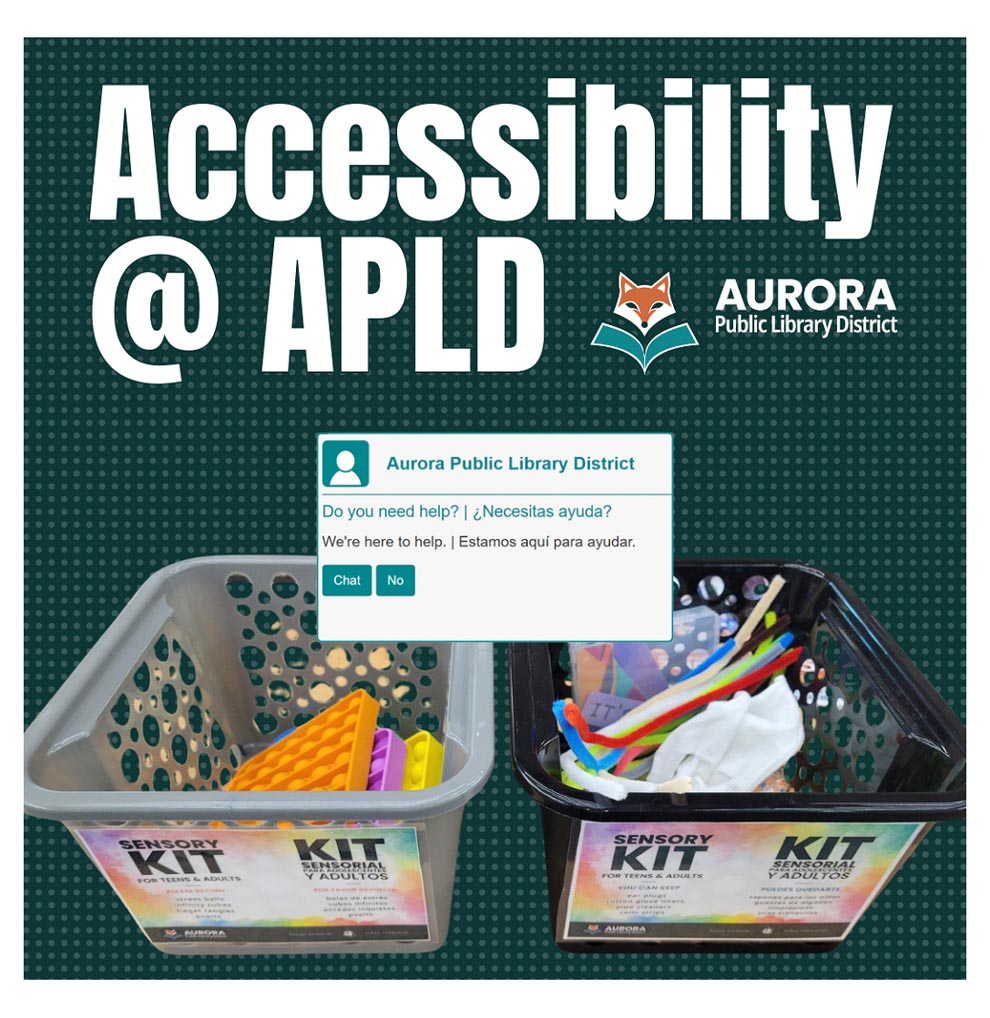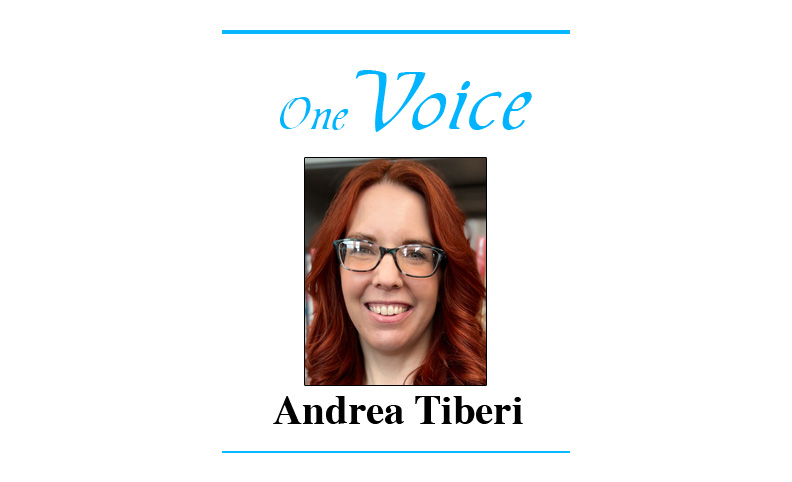

Accessibility at the Aurora Public Library District (APLD) is essential to ensuring that everyone in Aurora, regardless of physical, cognitive, or sensory ability, can access the resources and services we offer. APLD is a community hub where people come to learn, connect, and grow. To maintain this role, it is crucial we continually work to assess and remove barriers that may prevent full participation.
One of the library’s key missions is to make its physical spaces and services accessible to everyone. All library branches are wheelchair accessible, with open spaces for easy maneuvering. Additionally, the library is excited to be introducing mobility devices such as scooters, wheelchairs, and walkers in the near future at all locations. “It will be so helpful for customers to have easy access to mobility devices while they are here, rather than having to bring their own,” said executive director Michaela Haberkern. These changes ensure that everyone can move comfortably through the library and fully enjoy their visit.
We also offer many ways to check out library materials beyond just visiting in person. Customers can check out materials through curbside pickup or drive-thru, and for those who are homebound, APLD offers home delivery through our Outreach Services Department. Providing multiple ways to access materials and services ensures that physical limitations do not hinder someone’s ability to engage with the library.
For individuals with sensory or cognitive needs, the library provides sensory kits for children, teens, and adults. These kits are designed to reduce stress, aid in focus, and promote self-regulation. They contain items such as fidget toys, earplugs, and gloves, and are particularly helpful for people on the autism spectrum or with ADHD. By offering these kits, the library creates an environment where everyone can feel comfortable and supported. Throughout the library you will also see posters and pamphlets in both English and Spanish to direct people to common, and sometimes difficult, topics they may not be comfortable with seeking staff assistance to find. “People on the Autism spectrum especially find social interaction difficult,” said library assistant Maggie Wright. “Offering options for people to be able to help themselves can help reduce the burden of anxiety.”
In addition to creating accessible physical spaces, we are also working to eliminate communication barriers. “We have bilingual staff and use a translating service to communicate with non-English speakers in hundreds of languages to remove language barriers,” added Wright. Additionally, the library offers various ways to communicate with staff, including phone, email, chat, or in person. These options ensure that everyone, including those with auditory, visual, or speaking impairments, can get the help they need.
Feedback from customers plays a vital role in improving accessibility. APLD welcomes suggestions in person, online, by phone, or through anonymous forms. Listening to the community ensures that we are always evolving to meet your needs. “Everyone has different needs and abilities, at different seasons of life, and there’s just no good reason not to do whatever we can do to make the library more accessible for everyone,” said Haberkern. “I hope that customers can see our response to their suggestions in the materials in the collection, in the programs that we offer, and in the services we provide.”
By prioritizing accessibility, we create an inclusive space where people can gather, learn, and thrive. As technology and community needs continue to change, APLD is dedicated to finding new ways to make our services available to all, ensuring that no one is left out of the opportunity to grow and connect. For more information about accessibility efforts at the library or to request accommodation, please visit www.aurorapubliclibrary.org/accessibility or contact the library at 630-264-4117.
Andrea Tiberi is the communications coordinator for the Aurora Public Library District.

